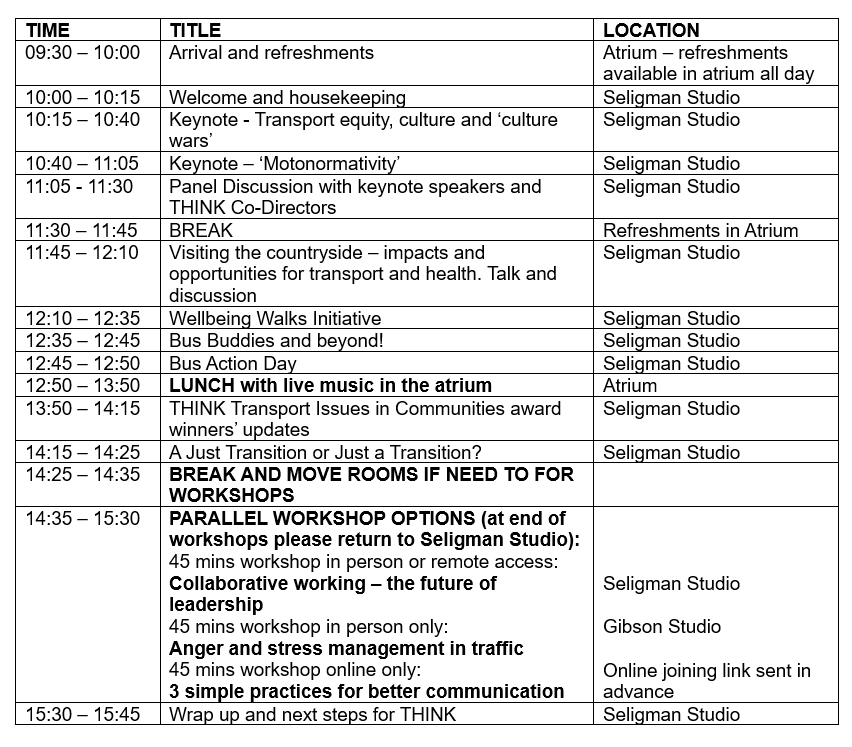Thanks so much to all of our contributors to the conference, our speakers, those who asked great questions and including the tech, venue and catering team at Royal Welsh College of Music and Drama. It was a lovely event for the THINK team and some participants anonymous feedback suggested that those who attended like it too….
“The venue was beautiful, catering excellent and the whole day was really useful. Thank you.”
“Thank you for a really stimulating and well-designed event. Really liked the content of the earlier sessions combined with the more impact-focused workshops.”
“Well organised conference, with lots of interesting presentations.”
“Thought the research displayed was of really high quality and more so than a recent event I attended where speakers were only given 5 mins each. Quality over quantity is paramount. Very good keynote speakers and event well ran”.
“I enjoyed listening to the research outcomes and also the ‘real life’ experiences.”
“Thanks for convening an insightful and inspiring event.”
Recordings and slides
If you missed it you can watch back some of the talks via our YouTube playlist .
You can access the slides all in one place https://think.aber.ac.uk/think-winter-conference-slides/(opens in a new tab)
Key take-aways
A sample of the key take-aways from the event that some participants shared with us were:
- Knowledge
- Connectedness in terms of lots of good work to decarbonise travel across the country
- There is a real appetite for working together across sectors to make better, healthier transport solutions and we need networks like these to make it happen.
- Key note speakers made some great points, main take home – it’s not easy.
- That thinking in the UK is car centric whether people are drivers or not.
- Planning needs to move away from motornormativity – it is enshrined within law so needs to be practiced!
- Small pots of funding can leverage excellent impact!
- Our culture/environment leads us to car driving as the social norm
- There’s still work to do!
- That transport inequalities have wide implications.
- Transport and the ability to travel is an important factor for peoples wellbeing.
- The equity of our policies and the scale of the task of challenging motornormativity.
- Importance of good inclusive collaboration on projects.
- Learning about the existence of the Decarbonising Leisure Travel Network.
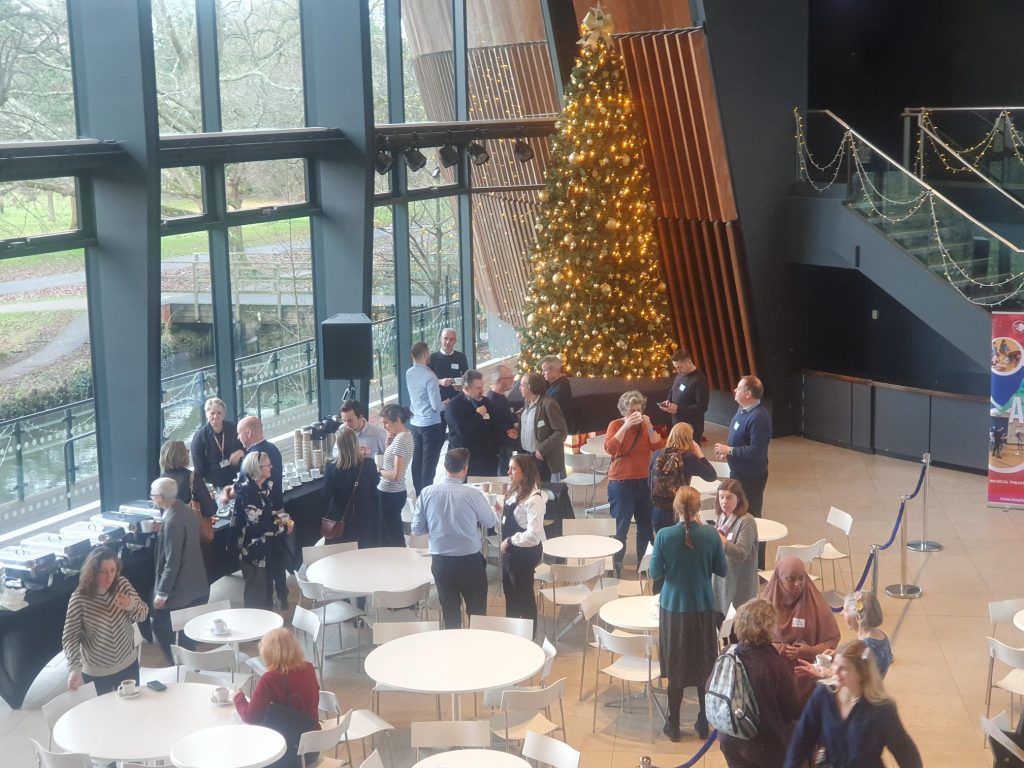
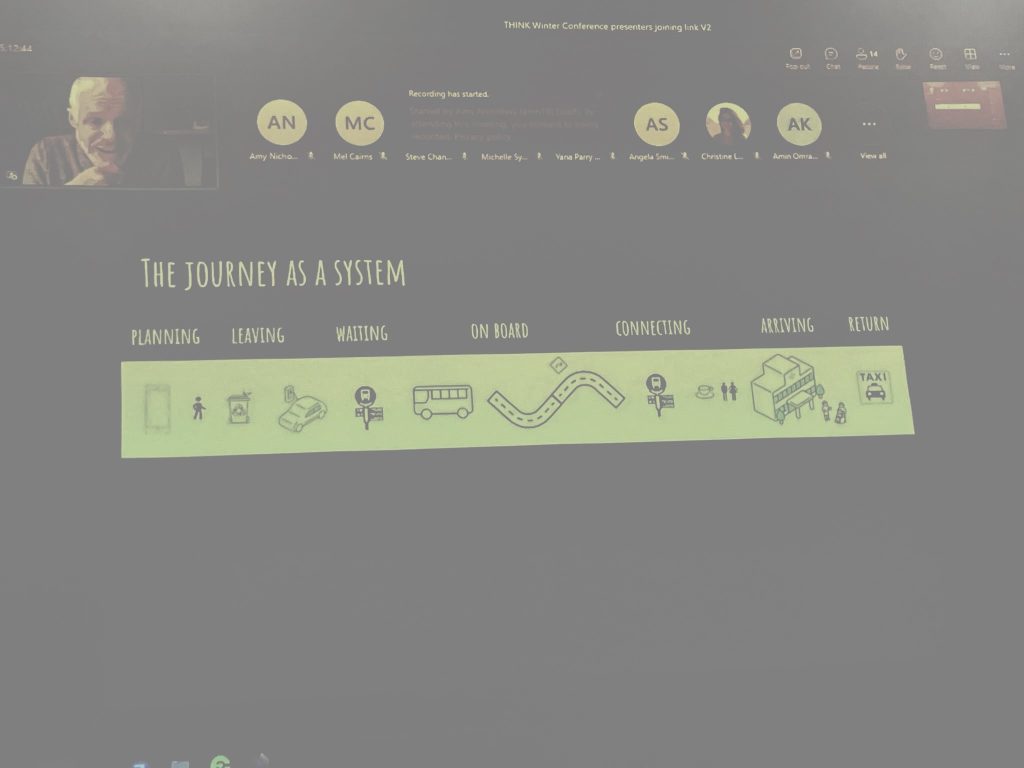
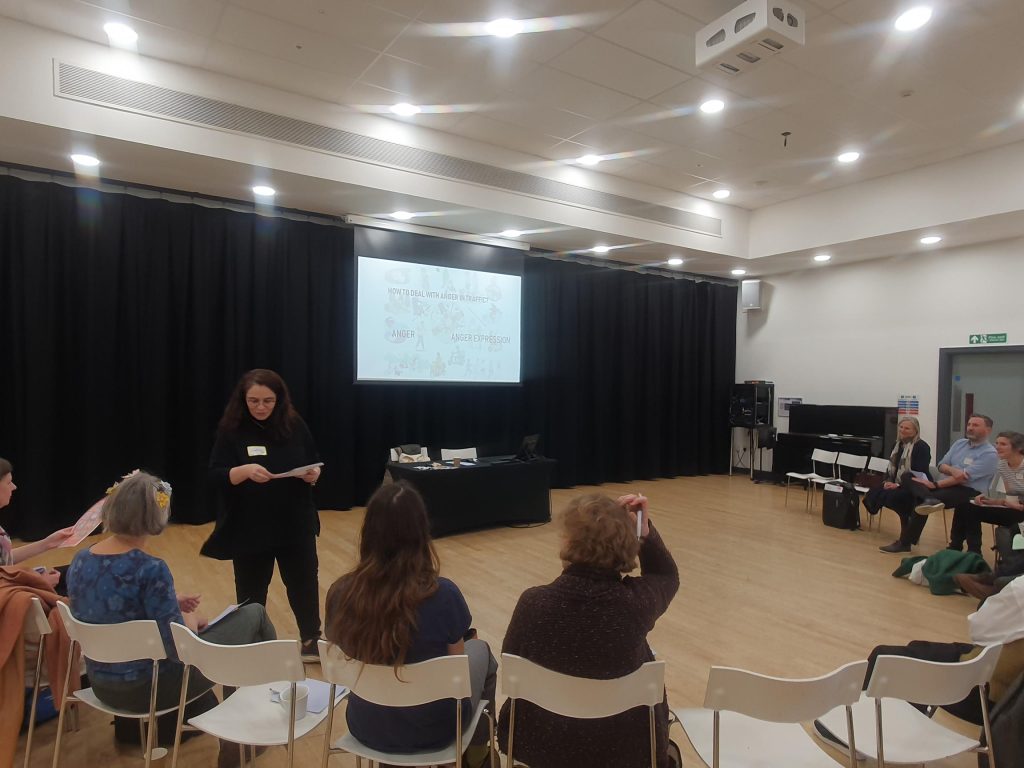
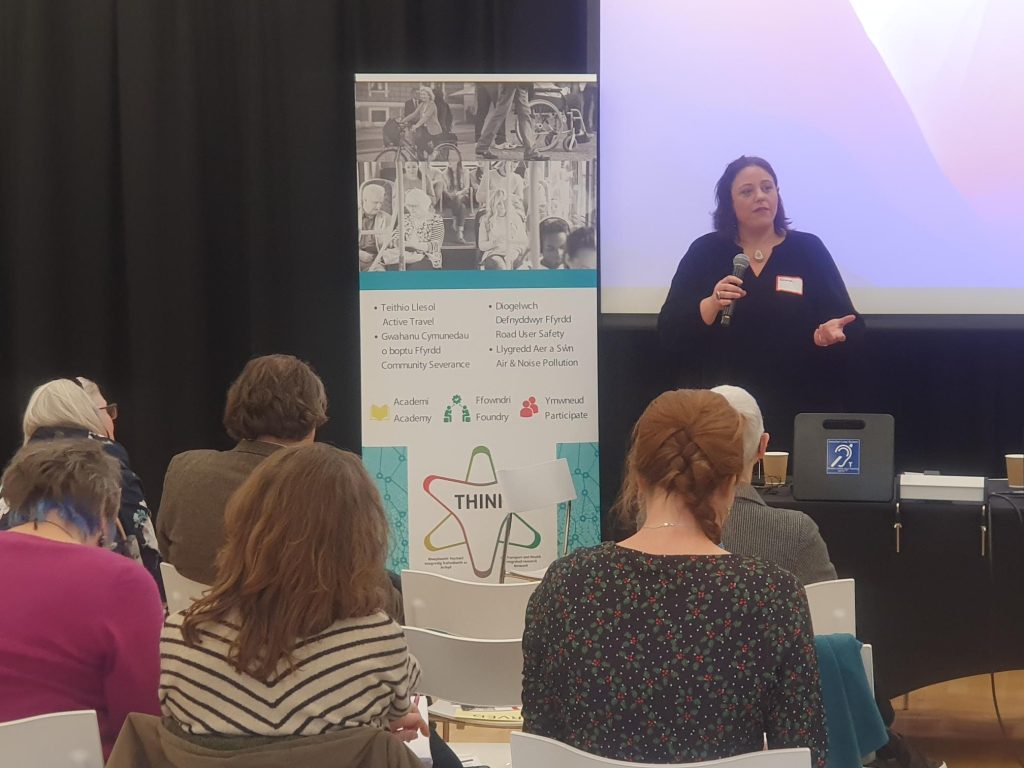
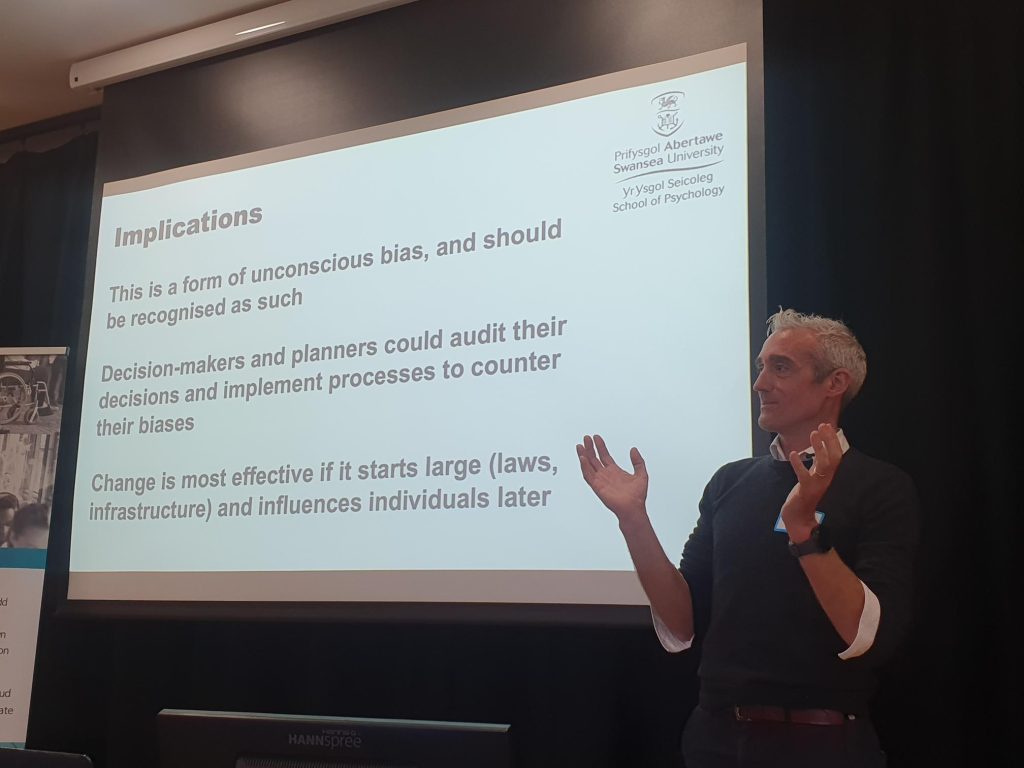
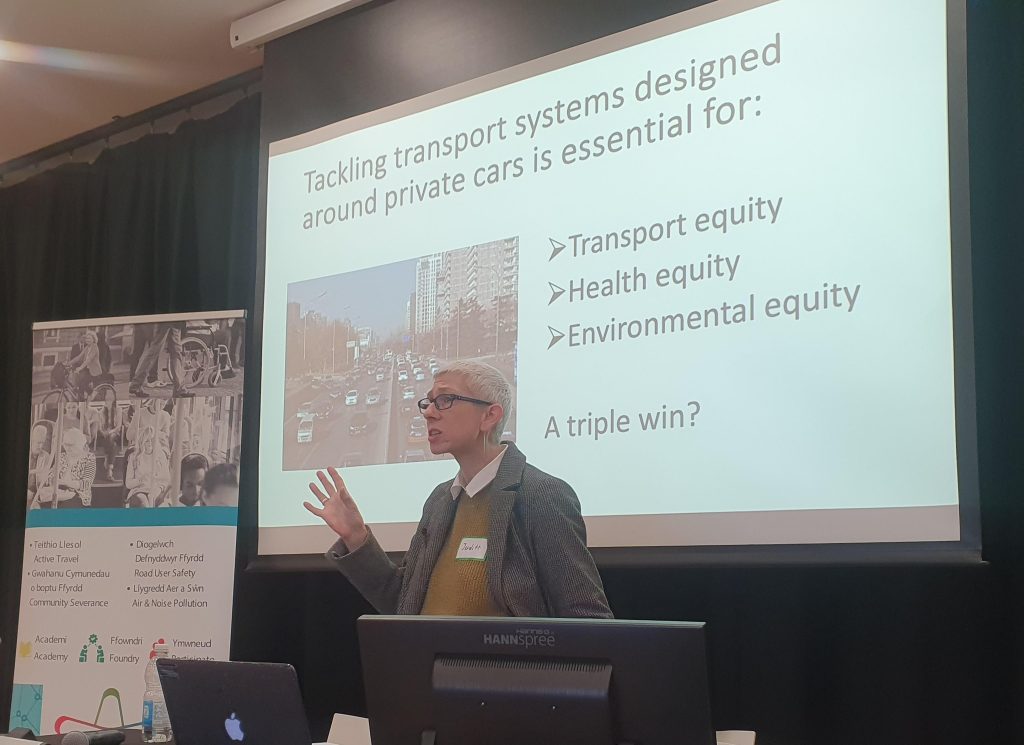
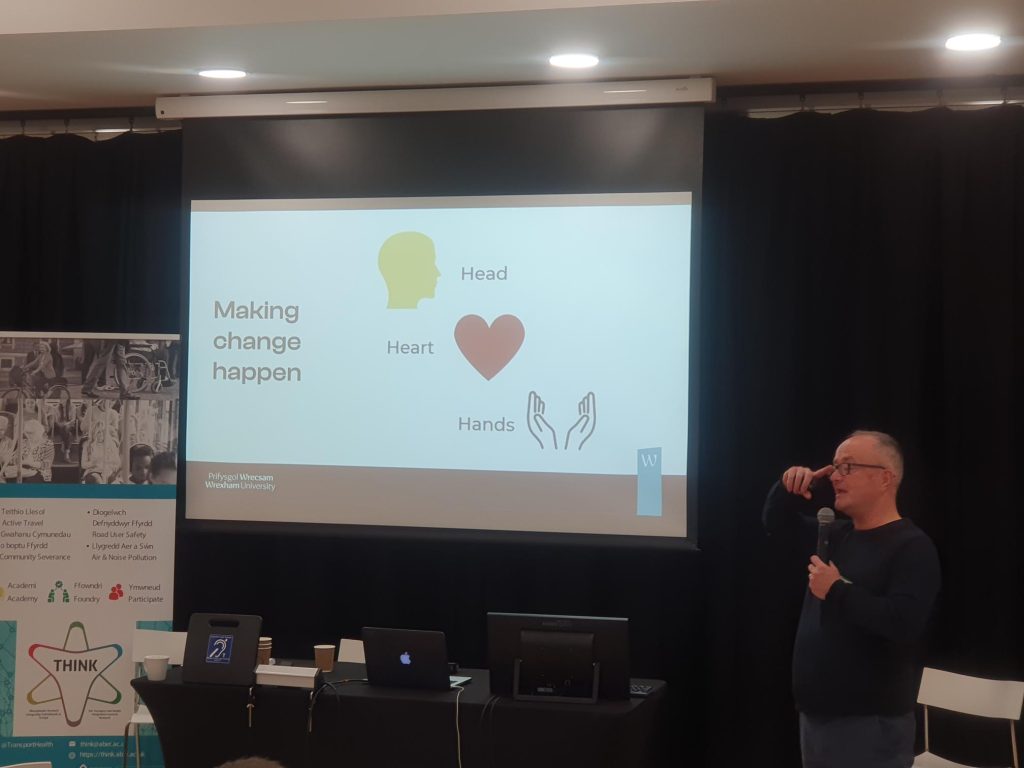
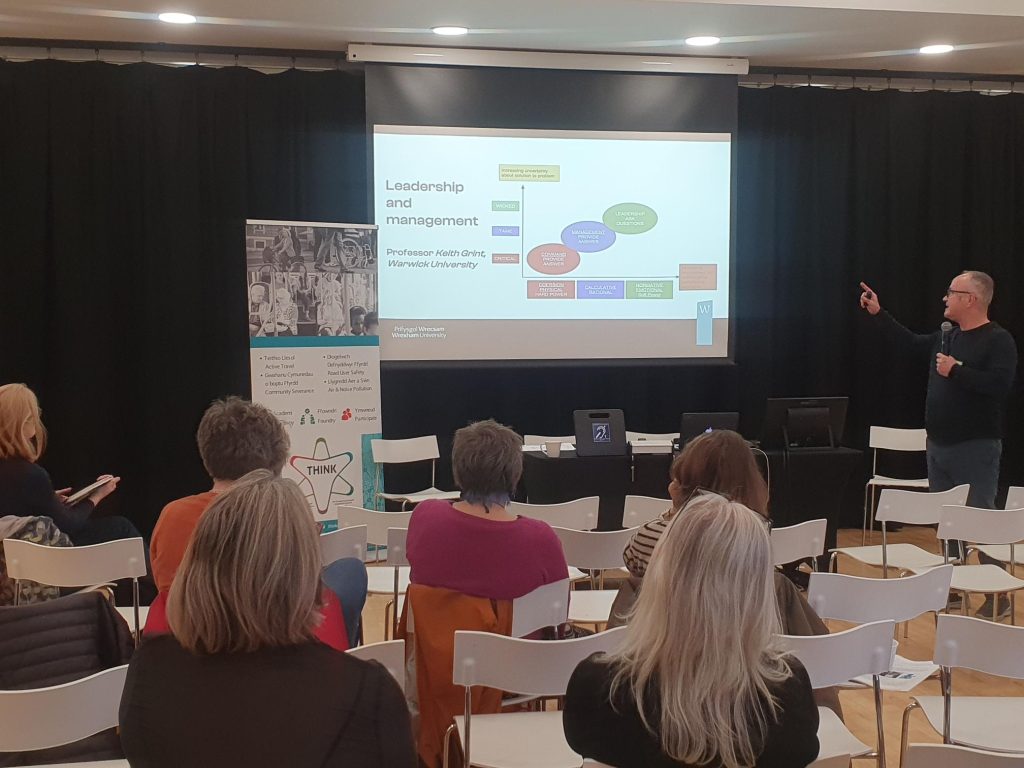
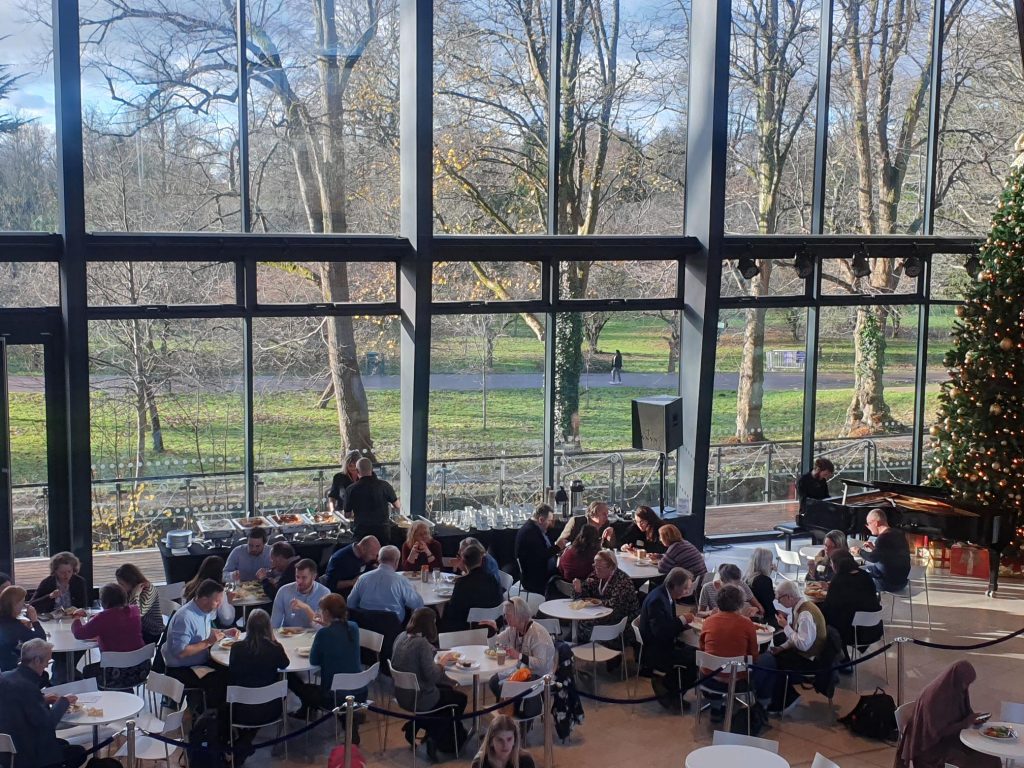
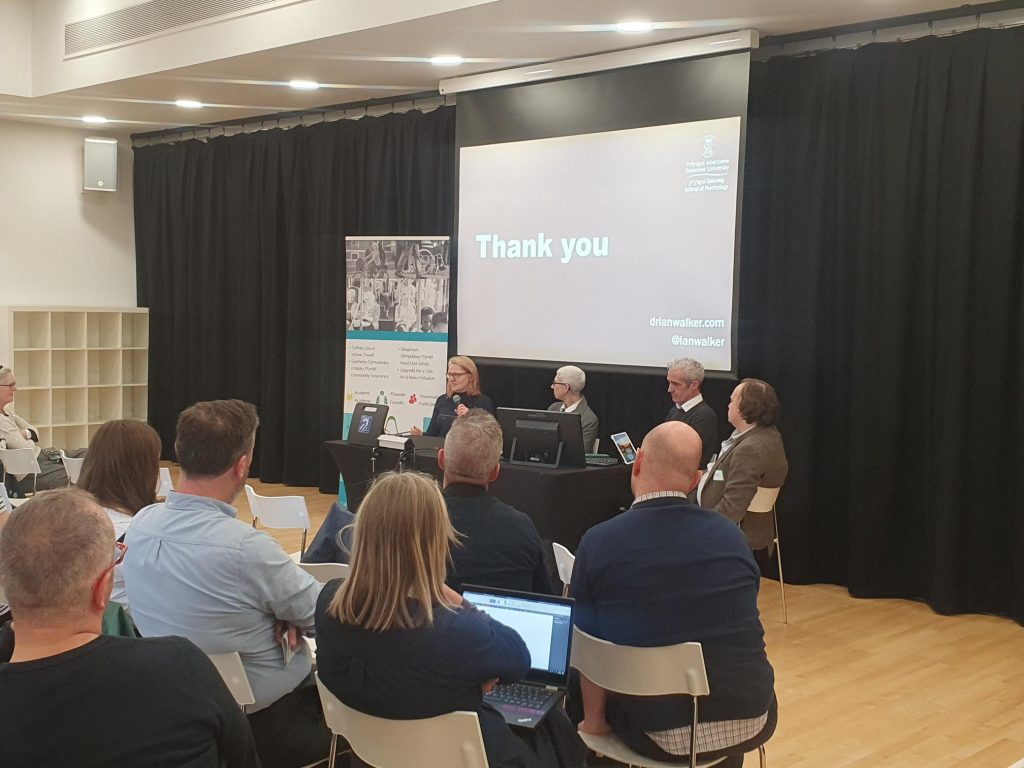
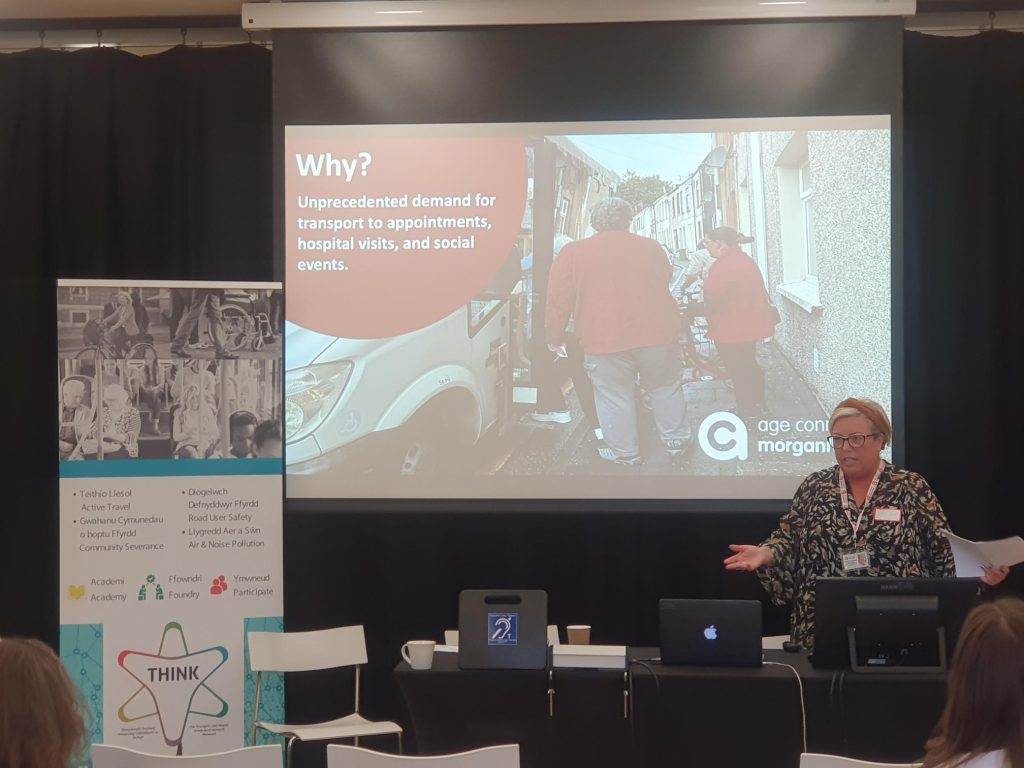
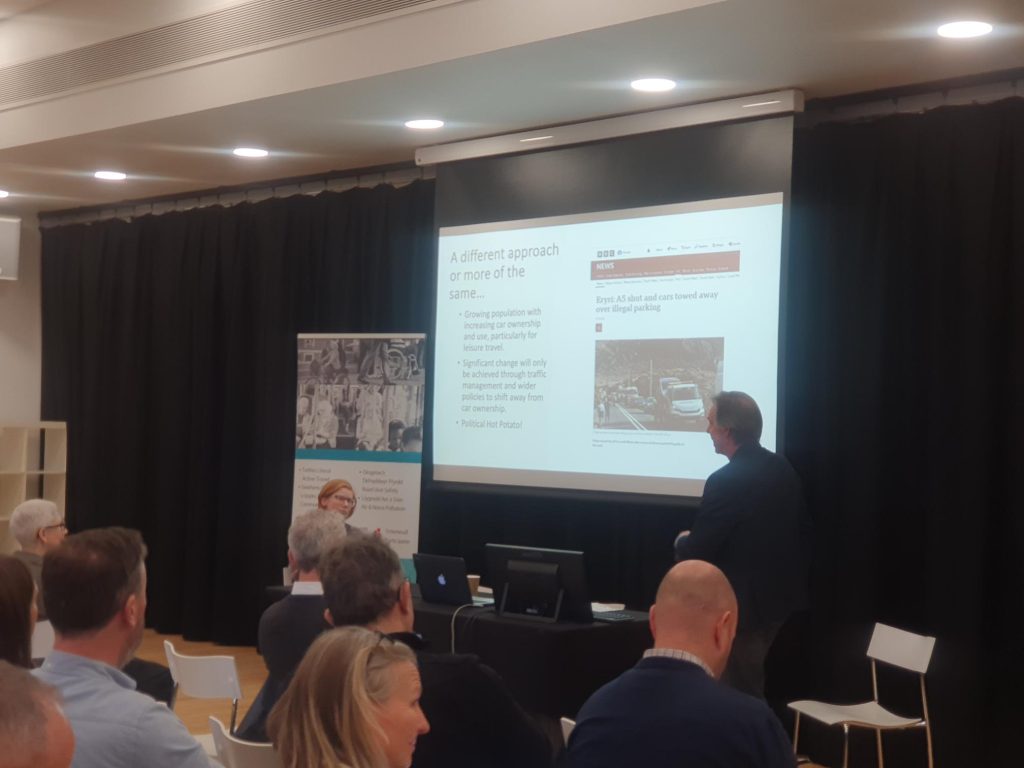
Keynote Speakers
Prof Judith Green
Judith Green is Professor of Sociology and Director of the Wellcome Centre for Cultures & Environments of Health at the University of Exeter. She has researched and published widely on transport and health, including studies of injury inequalities, and evaluations of policy interventions such as free bus travel for young people, 20mph zones, and reductions in street lighting.
Transport equity, culture and ‘culture wars’
Transport systems systematically disadvantage the most marginal in society, such that they benefit least from access to mobility, whilst incurring higher risks from pollution and road injury. Yet recent policy attempts to mitigate these inequalities in the UK – through low traffic neighbourhoods or national 20mph zones in Wales – have not been universally welcomed. Whilst opposition may be strategic (a manufactured ‘culture war’) it is also a warning not to ignore social and cultural factors when planning for transport equity. Good transport infrastructure is a necessary, but not sufficient, condition for addressing inequalities. We also need to consider intersectionality in relation to transport equity: how the interactions of dimensions such as rurality, age, ethnicity, gender and social class impact on how new infrastructure is used. And we need to consider the cultural meanings of mobility forms across those intersections. This presentation will draw on studies of different transport mode users to show how cultures of mobility frame what people do in relation to changing infrastructure, and how this can be taken into account in planning. Whilst bad faith actors might still incite ‘culture wars’ over attempts to improve transport systems, we are more likely to get widespread buy-in if culture is taken seriously from the outset.
Professor Ian Walker
Ian Walker is Head of Psychology at Swansea University. He is an environmental psychologist who specialises in psychology and behaviour in the areas of transport, energy and water. He also specialises in working on bringing user needs into multidisciplinary projects with engineers and architects. He has worked extensively on in-home displays for energy and water that take end-user understanding into account. He also has a long-standing interest in choices and behaviours around sustainable active travel.
Motornormativity: The dominance of cars in our society
Motornormativity is the notion that we accept different standards of public life for cars and driving than we do around other aspects of mobility and even other aspects of life. This may cloud our judgement around acceptability of harms that private vehicles have on society and on individuals, normalising the harm they do as acceptable. This presentation will highlight where we see motornormativity in action, how it clouds our judgements of mobility, both for the public and for decision-makers, along with evidence and research that shows this happening. It finishes with concluding what we might need to do to change the way we think about cars.
Presentations/ discussions:
1. Dr Richard Weston, University of Central Lancashire School of Business. Visiting the countryside – impacts and opportunities for transport and health .
The ‘Decarbonising Leisure Travel Network’ has been established to share knowledge and good practice with organisations involved with research, transport policy or provision, and the development and promotion of sustainable leisure travel.
Visitation to National Parks, Areas of Outstanding Natural Beauty and other rural tourism areas are largely car-dependent, partly because of accessibility limitations but also due to evolving visitation practices as car ownership in the UK has continued to grow. Problems of congestion, illicit parking, noise and visual intrusion identified at the inception of National Parks have never been resolved. Instead, they have increased in scale with the added challenge of reducing carbon emissions.
This presentation will provide an overview of key issues around UK rural visitation patterns which have been identified through the work of the Network. We analyse the health implications of these issues and invite discussion around the overlap between demand for leisure travel and health.
2. Michelle Symes, Research and Development Officer. Rural Health and Care Wales. Wellbeing Walks
The Wellbeing Walks initiative was undertaken by Rural Health and Care Wales (RHCW) links to the preventative agenda and promotes the positive health and wellbeing impacts of walking in the outdoors, with an associated traditional health link by commencing all walks from a recognised health site (GP surgeries / hospital). The intent of the initiative is to promote the physical health and wellbeing benefits of walking outdoors in nature. As such, a series of walks were mapped out on leaflets, which also noted wildlife, cultural and historic points of interest on the walks, listing too the positive impact walking has on health and wellbeing.
It will be the inaugural delivery the recorded walk presentation at the THINK Conference.
Short Presentations plus Q&A
- Bus Buddies and beyond! Delivered by Emma Bingham from the Community Transport Association Wales. What lessons can we learn from the innovative Pembrokeshire Bus Buddies project that will enable us to create bespoke travel training that is inclusive and supportive and that allows all in our communities to access community and public transport that meets their needs.
- Ceredigion Bus Action Day with Elly Foster from Ceredigion Bus Users Group
- Transport Issues in Communities Small Project Award updates: Increasing Mobility of Young Girls by Giving Scooties delivered remotely by Shahla Tabassum from Fatima Jinnah Women University, Pakistan. Age Connects Morgannwg: Transport Research delivered by Rachel Rowlands, CEO Age Connects Morgannwg.
- A Just Transition or Just a Transition? Using collective imagination to ensure we build an equitable low-carbon future with Andy Hyde from Go Upstream. If we design for transport decarbonisation without considering how future mobility will work for people, we’ll perpetuate existing travel barriers and possibly create more. This is happening already but we still have time to stop, zoom out, take a more systemic, inclusive approach and build visions of what we want our future journeys to look and feel like. This short presentation will highlight how our current approach to inclusive travel could be improved and propose a new framework and tool. Using these we can develop collective, citizen-powered visions of more inclusive low-carbon journeys and make an action plan for simultaneously tackling exclusion and decarbonisation.
Workshops in person
1. Collaborative working – the future of leadership with Ken Perry
Objectives
In our workshop we will work though four key strategic questions:
- What is leadership and how is it different from management
- What does leading beyond your organisation look and feel like
- How do we build collectives to address long term strategic challenges
- How do we recognise different forms of power and mobilise to get results
Ken Perry
Ken founded leadership practice, Do-Well, in 2014, which works to enable people, places and organisations to find their purpose, do well and succeed. He has over 40 years’ experience working across the public, private and third sectors from the most junior level to holding a Chief Executive position for 14 years. Ken provides one to one support for leaders, as well as working with executive teams, Boards, social movements and communities to support them in crafting and achieving their purpose and goals, working with them to act and crucially in many cases, staying with them through the ups and downs of leadership life. In his other roles, he is a Visiting Industrial Fellow at Wrecsam University, a founding member of the 2025 Movement in North Wales and a Vice Chair of Liverpool Charity and Voluntary Services. He has an MBA from the Open University Business School, is a Fellow of the RSA and a member of the Chartered Institute of Housing by examination. In 2021 Ken completed the leadership, organising and action programme at Harvard Kennedy School.
2. How do we deal with anger and stress in traffic? With THINK team.
In this working group, we will talk about how we cope with anger and stress experienced in traffic, how it affects our lives, and work on our skills to manage these emotions in a functional way. In addition, it is aimed to provide the participants with ten steps that can be used to manage anger using gamification.
Workshops online
Option 1: Remotely join the in-person workshop on Collaborative Working.
Option 2 (remote access only): 3 simple practices for better communication with Mike Corcoran
If we can’t communicate we can’t collaborate, and if we can’t collaborate we can’t begin to make meaningful progress with the complex national and global challenges we face.
In this practical online session, we will introduce and explore three very simple practices anyone can incorporate into their work, to enhance their communication, active listening and public speaking skills.
This session is for anyone with an interest in communication, and keen to refresh their skills, discuss ideas, and try out new approaches.
Mike Corcoran
Mike is an independent researcher and consultant based in North Wales, and specialising in co-production, communication and engagement. Alongside his independent work, Mike is a Visiting Researcher at Wrexham University and a Consultant with Co-production Lab Wales. Mike has worked extensively both as a public speaker and a coach to those who speak in public themselves, and leads Wrexham University’s ‘Introduction to Speaking in Public’ short courses.
THINK Winter Conference Agenda
